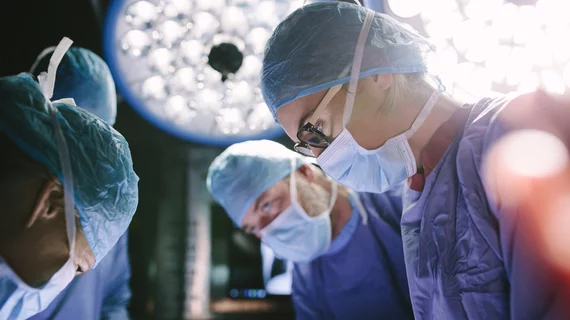FDA urges caution when using robotically-assisted devices for cancer-related surgeries
The FDA has issued a safety communication urging healthcare providers and patients to exercise caution when turning to robotically-assisted surgical devices for mastectomy and other cancer-related surgeries.
The agency stated that it has not granted marketing authorization for any robotically-assisted surgical devices for these purposes.
Robotically-assisted surgical devices allow surgeons to perform a variety of surgical procedures through small incisions in a patient's body, which may help reduce pain, blood loss, scarring, infection and recovery time. However, there is “limited, preliminary evidence” that the use of such devices for the treatment or prevention of cancer in women can help ensure long-term survival, according to the agency.
The FDA asked healthcare providers to complete appropriate training for specific robotically-assisted surgical procedures and recommended that the benefits, risks and alternative options of the procedure be discussed with patients.
Additionally, the agency advised patients to ask their healthcare providers about training, experience and outcomes related to the use of robotically-assisted surgery.
“In the case of robotically-assisted surgical devices and cancer-related uses such as mastectomy, we are aware of scientific literature reporting that surgeons have been using the device for uses not granted marketing authorization by the FDA,” Terri Cornelison, MD, PhD, assistant director for the health of women in the FDA’s Center for Devices and Radiological Health, said in a prepared statement. “We want doctors and patients to be aware of the lack of evidence of safety and effectiveness for these uses so they can make better informed decisions about their cancer treatment and care.”
The FDA also asks that any adverse events experienced with the use of the devices for treatment or cancerous conditions be reported through MedWatch, the FDA Safety Information and Adverse Event Reporting program.

